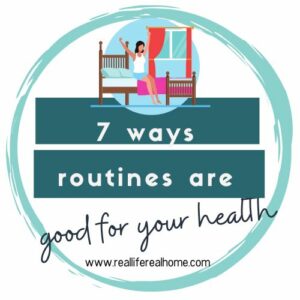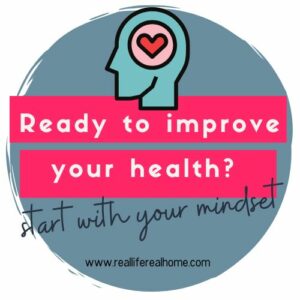Sleep is essential for your health and wellness. It affects all aspects of your health and wellness. But sleep concerns are very common: Being tired and having trouble sleeping seems to be more of the norm than feeling rested and sleeping great… Most adults need 7-9 hours of sleep a night, but most adults fall short of that number.
Sleep is a complex and essential process that contributes to holistic health by influencing physical, mental, and emotional well-being.
- Brain Function:
- Sleep is essential for cognitive functions such as memory consolidation, learning, and problem-solving. During sleep, the brain processes and organizes information acquired during waking hours.
- Cardiovascular System:
- Chronic sleep deprivation has been linked to an increased risk of cardiovascular diseases, including hypertension, heart attack, and stroke. During deep sleep, the heart rate and blood pressure tend to decrease, allowing the cardiovascular system to rest and recover. When the body is not getting proper sleep, this rest and recovery to the cardiovascular system is not happening and disrupts the normal process.
- Hormone Regulation:
- Sleep influences the release of hormones, including growth hormone, cortisol, and insulin. Lack of sleep can disrupt hormonal balance, leading to issues such as insulin resistance and increased stress.
- Immune System:
- Adequate sleep is crucial for a healthy immune system. During sleep, the body produces and releases proteins that help regulate the immune response. Lack of sleep can weaken the immune system, making the body more susceptible to infections.
- Respiratory System:
- Sleep is important for respiratory function and lung health. Sleep disorders, such as sleep apnea, can affect breathing patterns and contribute to respiratory problems.
- Musculoskeletal System:
- Sleep plays a role in the repair and growth of muscles, as the release of growth hormone is higher during certain stages of sleep. Chronic sleep deprivation may lead to muscle fatigue, weakness, and an increased risk of injuries.
- Digestive System:
- Sleep influences metabolism and appetite regulation. Lack of sleep can disrupt hormonal signals that control hunger and satiety, leading to weight gain and an increased risk of metabolic disorders.
- Mood and Stress Regulation:
- Sleep affects mood regulation and stress response. Lack of sleep can contribute to mood disorders and increased stress levels. I am sure most people have experienced increased irritability and easier frustration after not getting enough sleep. When this is happening repeatedly long-term issues can come up with mood and stress.
- Skin Health:
- Sleep is associated with skin repair and regeneration. Lack of sleep can contribute to skin problems, such as premature aging, decreased collagen production, and impaired wound healing.
- Energy Conservation:
- During sleep, the body’s energy expenditure decreases. This allows for energy conservation and helps in maintaining overall energy balance. Quality sleep contributes to better physical performance and stamina
- Regulation of Circadian Rhythms:
- Sleep helps regulate circadian rhythms, influencing the body’s internal clock. This, in turn, affects various physiological processes, including the sleep-wake cycle, hormone release, and body temperature.
If you are struggling with sleep and fatigue, it is good to talk to your medical provider. They may recommend labs or other things to see if there is anything medically causing it. An option worth exploring is to find a provider who specializes in functional medicine (finding the root cause) or a provider who will look at you as a whole person. They are more likely to do more testing and exploring into deeper causes and not just medicate you.
Improving sleep quality involves adopting healthy sleep habits, also known as sleep hygiene. Here are some tips to help you get better sleep:
- 1. Consistent Sleep Schedule:
- Our bodies love routine. Go to bed and wake up at the same time every day, helps regulate your body’s internal clock.
- 2. Create a Relaxing Bedtime Routine by establishing a nighttime practice. Here are some ideas to get you started.
-
- Put pajamas on (this starts signal to your brain that it is bedtime).
-
- Drink a cup of tea that supports relaxation and sleep. Make sure there is no caffeine and not just decaf.
-
- Read a book that is not on a screen. Also pick a book that is not too stimulating.
-
- Journal any worries that you are having, giving your thoughts a place to go can help stop the ruminating process.
- Write your to-do list for the next day, that way you know that there is nothing you are forgetting.
- Take a hot bath with Epsom salt or a shower.
3. Make your bedroom a sanctuary. Your bedroom should be a place that supports rest and relaxation. Take a look at these options:
-
- Assess your pillow and mattress, are they comfortable? Replace or update as necessary.
- Diffusing calming essential oils can help support sleep.
- Adding crystals for some, can help promote relaxation.
- Make sure you have a comfy blanket, an option to consider is a weighted blanket.
- Evaluate the sounds in your room, using a sleep machine or a fan for white noise.
- Keep your room cool and dark. Using blackout shades can help keep your room dark.
- Make your room a screen free zone. Having a tv in your room can disrupt sleep.
4. Limit Exposure to Screens:
-
- Reduce exposure to screens (phones, computers, TVs) at least an hour before bedtime, as the blue light emitted can interfere with the production of the sleep hormone melatonin. The light also signals to the brain that it is time to be awake and provides excessive stimulation at time that your brain needs to be relaxing.
5. What you do during the day matters!
-
- Watch your caffeine intake
- Drinking too much caffeine or drinking it in the afternoon/evening can affect your sleep. If this is an issue for you, start by eliminating 1 caffeinated drink a day.
- Watch your caffeine intake
-
- Move your body during the day.
-
-
- take a walk, do a workout, ride your bike, etc.
-
-
- Lower your sugar intake. Eating excessive sugar during the day can impact your ability to sleep at night.
-
- Get natural sunlight during the day
- this helps regulate our natural circadian rhythm & vitamin d production
- Stress reduction techniques. How you are handling your stress during the day affects the way you are sleeping at night. Consider adding practices that include deep breathing, meditating, walking in nature, etc.
- Limit Naps: If you do need to nap, keep it short (20-30 minutes) and avoid napping too close to bedtime.
- Get natural sunlight during the day
If you are looking to improve your wellness, I would love to help! Schedule a 1:1 consultation with me and we will spend an hour deep diving into how to build some healthy routines to support your health and wellness.
If you are new to wellness, check out these posts…


Empowering you to take charge of your health and wellness!
1:1 Wellness Coaching
- Working 1:1 together to build routines, confidence and a life that you love!
- Schedule your complimentary consultation!!
Join my monthly membership: Register here
✨ Your Daily Dose of Wellness—Made Simple! ✨
Busy schedule? No problem! Our Wellness Membership is designed for real life, giving you practical, doable challenges delivered straight to your inbox every morning. Small, intentional steps = BIG results for your health and happiness!
💌 Here’s what you’ll get each week:
🌿 Monday: A guided meditation to start your week with clarity & peace
💡 Tuesday: A deep dive into a trending wellness topic—learn & grow
✨ Wednesday: Simple, powerful wellness wisdom you can use immediately
📝 Thursday: Four thought-provoking journal prompts for self-reflection
🏋️♀️ Friday: A fitness idea for all levels—move in a way that works for YOU
✅ Saturday: A quick check-in to reflect & reset
🥗 Sunday: A simple meal plan to make healthy eating effortless
This isn’t another overwhelming program—it’s bite-sized wellness, designed to fit into YOUR life.
🌟 Join today and make wellness work for you! 🌟
And get ready for this…. you get everything I mentioned above included for only $29 a month!!! That is less than $1 a day!
My podcast!! Listen in your way:
Weekly Wellness Newsletter
- Just for signing up for my newsletter, you automatically get access to your guide to starting on your wellness journey.
- Receive an email every Wednesday with a different way to make wellness simple in your life.
Follow me on Social Media:
See what wellness looks like for me in my everyday life & you get more pictures of Lilo!!
- Instagram– follow my stories and reels
- On Pinterest – come pin with me – check out my boards for my favorite meal planning ideas and more!
- & if you want to dive into wellness a more, join my FREE private Facebook Group: Wellness for Real Life- body, mind and spirit
Be well,
Faith
***Some of the links in my posts contain affiliate links and I will receive a small commission if you make a purchase after clicking on my link. I pinky promise I will always give my honest opinion of any product and would never recommend something if I did not use and love it!!
D I S C L A I M E R Anything that I discuss about making any lifestyle changes is from my own experience and/or other clients personal experiences and may not be suited for you. It is strongly recommended that you consult with your health professional before making changes in your own life. By engaging in anything that I talk about, you agree that you do so at your own risk.